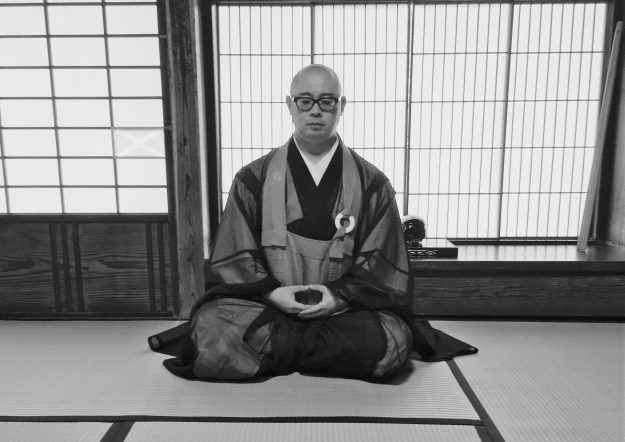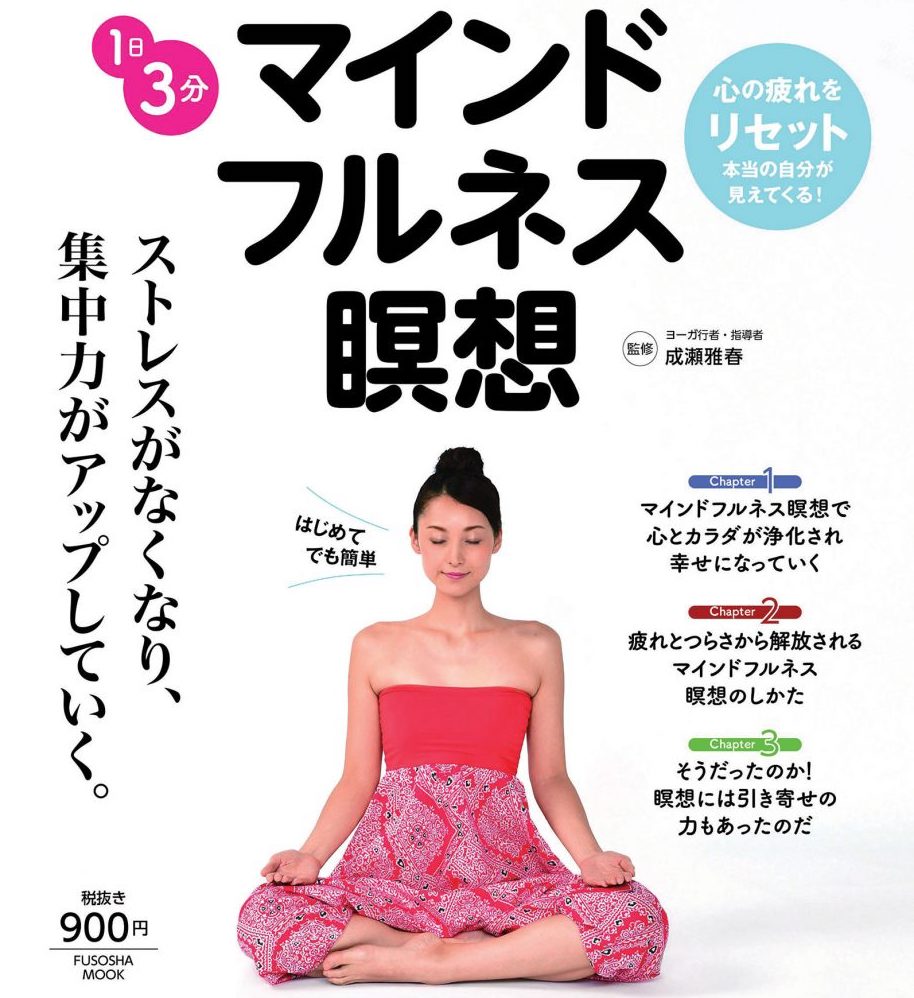In the western imagination, Buddhist meditation in Japan evokes the stoic monk sitting full lotus on a tatami mat or the lone hermit climbing to his mountain hut. But in today’s Japan, the models for these images are slowly receding as many people embrace a growing phenomenon—mindfulness, or maindofurunesu (the English word, now a Japanese loanword).
In 2017 at least three major Japanese magazines ran cover stories touting the benefits of mindfulness, citing scientific studies, and advocating its use in business settings. Mindfulness events cropping up across the country are just one sign that the practice is starting to stick.
Some monks see the growing interest in meditation as an opportunity to revive Buddhism, which most Japanese people view as stuffy and irrelevant.
“In Japan, Buddhism is considered conservative—a traditional organized religious institution,” Reverend Takafumi Zenryu Kawakami recently told Tricycle in an email.
Rev. Kawakami is the deputy head priest of Shunkoin, a Rinzai Zen temple in the Myoshinji complex in Kyoto. He’s part of a small group of Zen priests who have been promoting mindfulness in hopes of demonstrating the relevance of Buddhism in people’s lives. He has long been interested in teaching Japanese and Western audiences how Buddhist ideas can cut through our preconceived biases, and has given lectures at universities, corporations, and TEDx conferences. He also leads meditation classes at Shunkoin temple for foreigners and locals.
The approach of this Zen priest may sound similar to those of many other mindfulness teachers, but he’s an exception among his fellow Japanese monks, who do not spend a lot of time teaching meditation. Instead, most temples primarily provide memorial services— expensive Buddhist funerals—for deceased followers.
In hopes of reviving popular interest in Buddhism, monks across Japan in recent years have endeavored to shed the stereotype of money-mongering spiritual undertakers in hopes of reviving societal interest in Buddhism. Some of their efforts, like spearheading a renta-priest startup with the online retailer Amazon, or launching an easy-to-use website offering low-cost memorial services, are savvy attempts to enliven and modernize the priests’ role in Japanese funerals. Other Buddhist monastics have tried more unconventional strategies—starting organic farms and cafés, mixing cocktails at monk-themed bars, engaging in environmental activism, or using anime figures as part of their efforts to appeal to the young.
But for Rev. Kawakami, the future of Japanese Buddhism is intertwined with maindofurunesu—and he is choosing to take part in the mindfulness industry with a heedfulness that bespeaks both spiritual and business savvy.
Related: The Mindfulness Movement and Its Surprising History
Other monastics are noticeably less enthusiastic. Resistance to mindfulness is evident in a dialogue between Daiko Matsuyama, a Zen priest ordained, like Rev. Kawakami, in the Myoshinji tradition, and corporate mindfulness instructor Yuka Shimada. Their exchange appeared in a 2017 issue of the Japanese women’s magazine President Woman. “The mindfulness of today is used rather like a technique, a how-to,” Matsuyama remarked. “It’s a bit of a shame—mottainai [a waste].” He added that the “right mindfulness” of the Buddha’s eightfold path cannot be simply extracted for general use. While agreeing that mindfulness alone does produce benefits for the practitioner, he says such results mistake the insignificant for the essential.

Although Rev. Kawakami hasn’t shied away from the m word when promoting his temple, underneath those efforts lies a deeper intent.
“I want to teach people what mindfulness lost in the processes of secularization and universalization,” Kawakami explains. “The ideal version of mindfulness is not just for use as a therapeutic method to make ‘you’ happy. It should be used as a way to understand the nature of the interdependent, impermanent self.”
Does mindfulness as a chirpy Western import have the potential to revolutionize a funeral-oriented Japanese Buddhism? Right now, Rev. Kawakami teaches most of his meditation courses in English, mainly to foreigners.
“The answer can be yes and no,” the Zen monk maintains. “If ‘McMindfulness’—a shallow focus on well-being—becomes the major movement in Japan, then definitely, mindfulness will damage us more.
“But if Buddhist priests, who have profound experience in both traditional Buddhism and contemporary mindfulness, speak out about the issues of well-being and happiness, this could be a great opportunity for Buddhism to revive itself in Japan.”
Thank you for subscribing to Tricycle! As a nonprofit, we depend on readers like you to keep Buddhist teachings and practices widely available.
